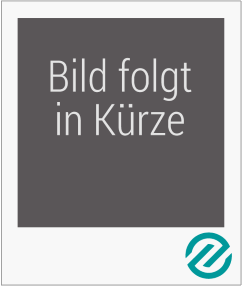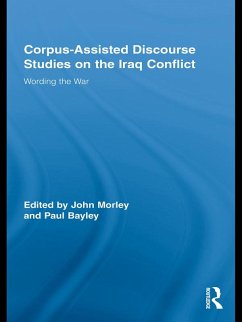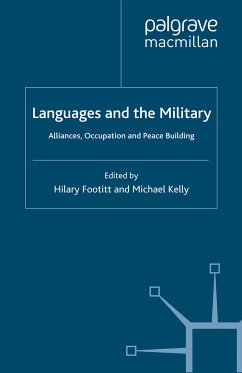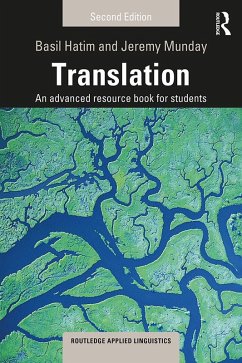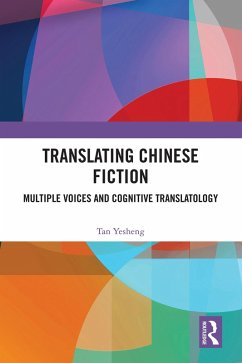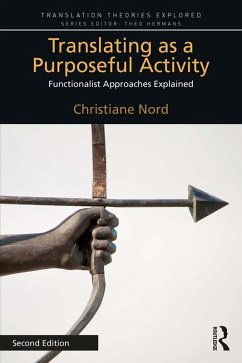
Translating Controversial Texts in East Asian Contexts (eBook, PDF)
A Methodology for the Translation of 'Controversy'
Sofort per Download lieferbar
19,95 €
inkl. MwSt.
Weitere Ausgaben:

PAYBACK Punkte
10 °P sammeln!
Zulawnik focuses on the broad concept of 'controversy' and issues pertaining to the translation of politically and historically controversial texts in East Asia.The research methodology is exemplified through a case study in the form of the author's translation of the best-selling Japanese graphic novel (manga) Manga Kenkanryu (Hate Hallyu: The Comic) by Sharin Yamano (2005), a work that has been problematised as an attack on South Korean culture and the Korean Wave. Issues analysed and discussed in the research include translation risk, ethics, a detailed methodology for the translation of so...
Zulawnik focuses on the broad concept of 'controversy' and issues pertaining to the translation of politically and historically controversial texts in East Asia.
The research methodology is exemplified through a case study in the form of the author's translation of the best-selling Japanese graphic novel (manga) Manga Kenkanryu (Hate Hallyu: The Comic) by Sharin Yamano (2005), a work that has been problematised as an attack on South Korean culture and the Korean Wave. Issues analysed and discussed in the research include translation risk, ethics, a detailed methodology for the translation of so-called controversial texts exemplified through numerous thematically divided examples from the translation of the chosen Japanese text, as well as examples from a Korean language equivalent (Manhwa Hyeomillyu - Hate Japanese Wave), and definition and contextualisation of the concept of 'controversy'. There has been limited research in the field of translation studies, which seeks to exemplify potential pragmatic approaches for the translation of politically-charged texts, particularly in multi-modal texts such as the graphic novel.
It is hoped that Zulawnik's research will serve both as a valuable source when examining South Korea-Japan relations and a theoretical and methodological base for further research and the development of an online augmented translation space with devices specifically suited for the translation of multi-modal texts such as - but not limited to - graphic novels and visual encyclopaedias.
The research methodology is exemplified through a case study in the form of the author's translation of the best-selling Japanese graphic novel (manga) Manga Kenkanryu (Hate Hallyu: The Comic) by Sharin Yamano (2005), a work that has been problematised as an attack on South Korean culture and the Korean Wave. Issues analysed and discussed in the research include translation risk, ethics, a detailed methodology for the translation of so-called controversial texts exemplified through numerous thematically divided examples from the translation of the chosen Japanese text, as well as examples from a Korean language equivalent (Manhwa Hyeomillyu - Hate Japanese Wave), and definition and contextualisation of the concept of 'controversy'. There has been limited research in the field of translation studies, which seeks to exemplify potential pragmatic approaches for the translation of politically-charged texts, particularly in multi-modal texts such as the graphic novel.
It is hoped that Zulawnik's research will serve both as a valuable source when examining South Korea-Japan relations and a theoretical and methodological base for further research and the development of an online augmented translation space with devices specifically suited for the translation of multi-modal texts such as - but not limited to - graphic novels and visual encyclopaedias.
Dieser Download kann aus rechtlichen Gründen nur mit Rechnungsadresse in A, B, BG, CY, CZ, D, DK, EW, E, FIN, F, GR, HR, H, IRL, I, LT, L, LR, M, NL, PL, P, R, S, SLO, SK ausgeliefert werden.






